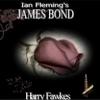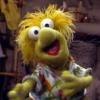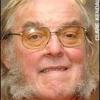Posted 23 June 2011 - 03:44 PM
SPOILERS for Carte Blanche (naturally)
I have just finished reading Carte Blanche and my initial reaction is simply this-I am overwhelmed. I am simply overwhelmed by the brilliance and intricacy of the plot, and by the ceaseless attention to detail that surpasses even that of Ian Fleming's perhaps. I truly feel that Jeffrey Deaver has succeeded not merely in 'reviving' an old iconic legend, but in completely reinventing him as a new modern-day character, in many ways totally distinct from ANY past versions, literary or cinematic.
The most striking aspect of this novel, and indeed Deaver's greatest literary achievement within it, is the character of James Bond himself. Ian Fleming, at least in his early novels, sought to present 007 as an enigma, an empty shell or persona that the reader could 'slip into' and enjoy all those fantastic adventures. Details about Bond's past, his family, his motivations were given sparingly, if at all. Deaver however leaves us with no doubts about who Bond is and where he comes from. One of the earliest chapters contains a flashback revealing Bond's military past as a Naval Reserve officer who undertook black ops missions in Afghanistan, his first meeting with M, and his recruitment into the 00 Section of the ODG. He is immediately presented as the perfect weapon-the consummate warrior ever-willing to kill in name of protection of the Realm, as well as the skilled infiltrator, able to blend into any environment and play different parts with the utmost skill ("a rare combination of both", as M says while recruiting him). Bond is not just a thug, or even a cold blooded killing machine-he is a sophisticated and highly intelligent and skilled operative who can think and plan and deceive as well as he can shoot and stab. Throughout the novel, Bond engineers situations to trap and/or manipulate other individuals, or manipulates hostile situations to his favor, while refraining from using lethal force (or any force for that matter)...yet towards the end, when the need arises, he is prepared to jump into action and maim, kill and torture whenever necessary, to complete the mission or to survive. Bond is both intellectual and killer-a man closer to perfection than others, which is what makes him unique (as opposed to his tastes in liquor, clothes and cars). The sub-plot involving Bond's parents, and the possible links of one of them to the world of espionage during the Cold War, adds greater depth to his character...Bond is not merely an unfortunate orphan, but he becomes, ironically enough, the grown-up child of a spy, who is troubled by his parent's deceit of him even as he continues to live and even flourish within that very world of deceit to which they belonged. The steel catridge on the mantlepiece in his flat is a nice symbol of this murky chapter of Bond's past, exemplifying how the deceitful world of espionage and conspiracy had affected him right from his childhood...
Another development of Deaver's, which I found surprisingly to my liking, was the replacement of MI6 with the fictitious 'Overseas Development Group'
(ODG) as Bond's employer. While Bond being an agent of 'Her Majesties' Secret Service' is an iconic aspect of his character, the truth be told, one of the inherent flaws of Bond belonging to the 'Secret Intelligence Service, in both the Fleming novels and the films (obviously to a much greater extent in the latter), was that Bond never really did much in the way of actual 'spying' or 'intelligence gathering'-he instead spent most of his time acting as a one-man commando unit of sorts in effect, eliminating threats, rather than investigating them. Deaver has addressed this age-old inconsistency of the franchise by making Bond an agent of a seperate agency, one that specıalıses not in intelligence gathering, but simply in eliminating threats and protecting the realm 'by any means necessary'. Bond has always been more of a one-man commando operative than spy; Deaver simply states this explicitly. In one illuminating passage within the novel, Deaver writes of how MI6 focuses on intelligence gathering and spreading misinformation, whereas the ODG simply acts on intelligence received from MI6 and other intelligence gathering agencies, and eliminates threats. So basically, Bond does what he's always been doing, except that now saving the day while killing the bad guys is PRECISELY his job description.
The novel has three female characters, and each of them is well-developed and plays a pivotal part in the novel. None of the female characters are mere eye candy that Bond simply devours, as he does in the films, and even some of Fleming's novels-each is a full-formed character in her own right, who impacts Bond on a personal level. By far the most intriguing of the three is the MI6 liason to the ODG, Ophelia Maidenstone...she is Bond's trusted friend and colleague, well aware of his dangerous professional life, and while there is clearly some sexual tension between them, she's not just a woman Bond goes to bed with. Their relationship truly seems far deeper and more meaningful than mere lust and I hope it is explored to a greater extent in future novels. Bond's own attitude to women is a refreshing change from the playboy who sleeps around with a few women per mission, and ends up with one by the end of the movie, only to get rid of her eventually and start over...it is telling that he ends up with neither of the three female characters in the books. While he seems to realise that his profession is not really compatible with a normal life and relationship, he doesn't really decide to become a mere serial womanizer either. I get the feeling that Bond's sexuality and his emotional quotient is one which is another area of exploration for future installments.
Lastly, the villain, Severan Hydt is a truly brilliant creation-he combines the classic Bond element of a villain with a particular obsession or speciality that is shaped into a deadly plot; along with the image of a 21st century entrepreneur involved in an industry of great modern relevance-recycling. Hydt's grand scheme, which could have been absurd, actually comes across as being highly plausible, and even brilliant, in an insane sort of way. The secondary character of Niall Dunne comes across as being a darker version of Bond virtually-a chessmaster who schemes against Bond and is eventually checkmated by 007. Felicity Willing however, when revealed as the ultimate mastermind in the a shocking denouement, comes across as the coldest and most manipulative of the lot...a white-collared mercenary using 'hunger' as a weapon, another 21st century global issue made chillingly relevant to the novel's plot.
Overall, this is truly a well-crafted, intricate, intelligent and highly enjoyable thriller that certainly demands to be read again









